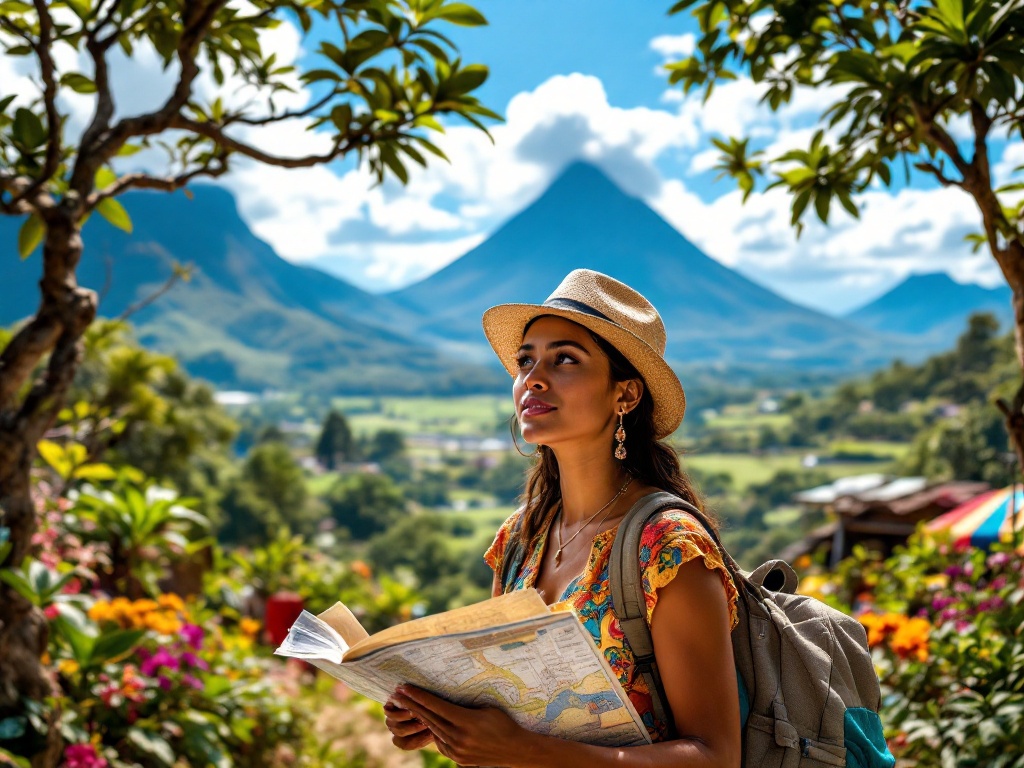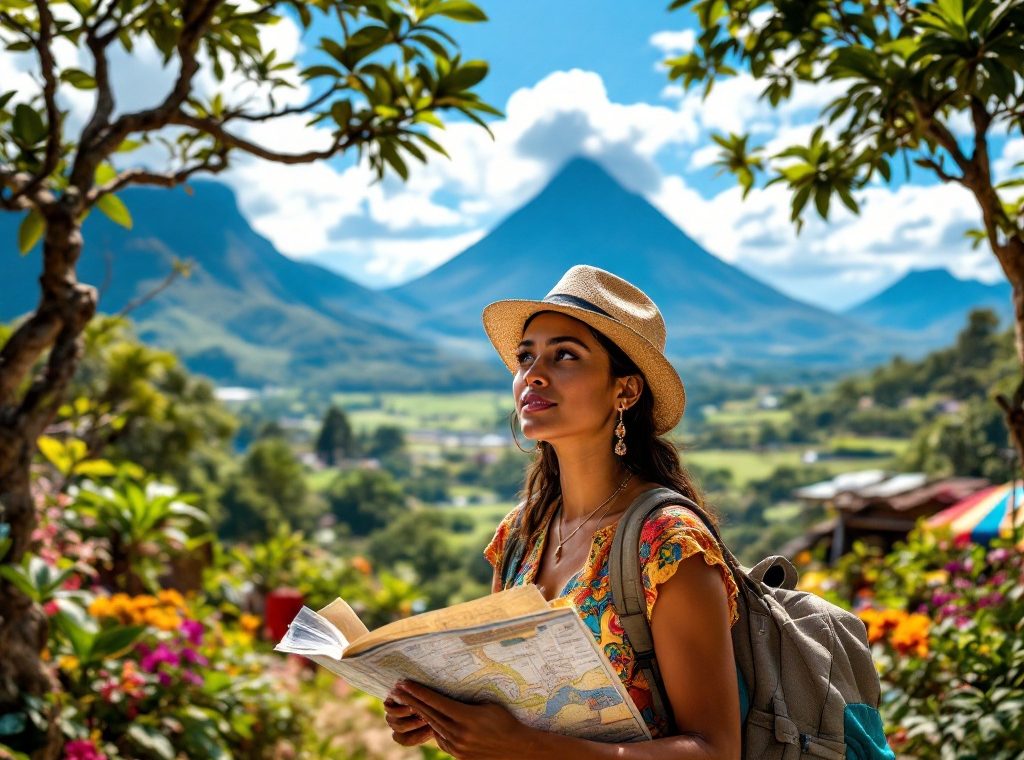Guatemala Travel Advisory: Travel Tips for a Safe Trip
Planning a trip to Guatemala? While the country offers rich culture and stunning landscapes, safety should be your top priority. Crime, including violent acts, is a serious concern, and natural disasters are a real possibility. This guide provides crucial safety tips, from avoiding risky areas and transportation to staying safe during emergencies. Learn how to protect yourself from theft, understand local laws, and access emergency services. Prepare for a safe and enjoyable Guatemalan adventure. Read on to learn more.
Important information

- Guatemala has high crime rates, including violent crimes. Exercise increased caution, especially in tourist areas. Avoid walking alone at night and do not resist robbery attempts.
- Use reputable transportation services like pre-paid taxis, radio taxis (Taxis Amarillo Express, Taxi Seguro), Uber, or INGUAT-approved taxis. Avoid public buses (“chicken buses”) and hailing taxis on the street.
- Consult your doctor about recommended vaccinations (Hepatitis A & B, Typhoid, Chikungunya) and malaria prevention. Carry insect repellent and drink bottled water.
- For emergencies, dial 110 (police), 118 (ambulance), or 122 (fire). Contact PROATUR (tourist assistance) at (502) 2290-2810 or the U.S. Embassy for consular assistance. Enroll in the Smart Traveler Enrollment Program (STEP).
- Respect local laws and customs. Drug offenses carry severe penalties. Avoid photographing government buildings. Exercise discretion with public displays of affection, especially in rural areas.
Guatemala Travel Advisory: Essential Safety Tips
Reconsider travel to Guatemala due to safety risks. Crime, including violent crimes such as armed robbery and homicide, is a serious concern, along with civil unrest. To enhance your safety, follow these guidelines:
Avoid walking or driving at night. Use taxis or rideshares instead.
Steer clear of public transport.
Choose accommodations with robust security measures.
Maintain situational awareness at all times. Avoid demonstrations and large gatherings.
Leave expensive jewelry and electronics at home.
If confronted by robbers, do not resist.
Should You Travel To Guatemala?
Guatemala has a high crime rate, including violent crimes such as armed robbery and homicide. Exercise increased caution, especially in Guatemala City and other areas known for elevated crime levels. Stay aware of your surroundings and consult local media for the latest safety updates. Be vigilant in tourist areas, as these can be targets for theft. Avoid displaying expensive jewelry or electronics. Do not walk alone at night, especially in isolated areas. If confronted by criminals, do not resist. It’s safer to cooperate and hand over valuables than risk injury. Consider using reputable transportation services, especially after dark.
Entry and Exit Requirements
Traveling to Guatemala? Ensure your passport is valid for six months beyond your departure date. Visas aren’t necessary for stays of 90 days or less, but you’ll receive an entry stamp upon arrival. You must also complete an electronic declaration form. A 90-day tourist card can be purchased upon arrival. Have proof of onward travel, like a return ticket, and sufficient funds for your stay. Check with the nearest Guatemalan embassy or consulate before your trip, as entry and exit regulations can change. This also helps you stay aware of potential travel disruptions, such as demonstrations or traffic issues. Local media can also offer helpful updates.
What Do You Need to Enter and Exit Guatemala?
Before traveling to Guatemala, ensure your passport’s validity extends at least six months beyond your departure date. Upon arrival, purchase a tourist card, allowing a stay of up to 90 days. Have a return or onward ticket ready, and be prepared to show proof of sufficient funds for your trip. Lastly, complete the electronic declaration form before departure.
Crime and Safety Concerns
Avoid walking alone at night, especially in isolated areas, due to the prevalence of violent crime, theft, and scams.
Minimize risks by keeping expensive jewelry and electronics out of sight.
Exercise caution when using ATMs, particularly those in public areas.
Swim in groups due to the Pacific Ocean’s strong currents.
Steer clear of protests and demonstrations.
What Are the Risks of Violent and Petty Crime?
Guatemala has significant crime problems, including violent crimes such as murder, armed robbery, and kidnapping. Tourists, in particular, should exercise increased caution. Petty theft, like pickpocketing and bag snatching, is prevalent in popular tourist areas, as criminals frequently target foreigners. For your safety, utilize reliable taxi services and steer clear of illegal drugs, as drug offense penalties are severe. Remain vigilant and take necessary precautions to protect yourself.
Safety Advice for Tourists in Guatemala
- Be aware of your surroundings, especially in crowded areas.
- Avoid displaying expensive jewelry or electronics.
- Do not carry large amounts of cash.
- Use reliable transportation, such as registered taxis or ride-sharing services.
- Stay in well-lit and populated areas at night.
Important Considerations
- Be cautious when accepting drinks or food from strangers.
- Do not leave your belongings unattended in public places.
- If confronted by a robber, do not resist. Hand over your valuables.
- Report any crimes to the local police and the nearest embassy or consulate.
- Avoid illegal drugs, as penalties are severe.
How to Prevent Pickpocketing and Bag-Snatching
Staying safe in public, especially in bustling areas, requires vigilance. Keep your belongings close and valuables out of sight. Never leave your drinks unattended. Carrying bags in front of you or using a crossbody strap adds an extra layer of security. Consider using anti-theft bags or wallets for enhanced protection. These precautions can significantly reduce your risk of theft.
How to Avoid Being a Victim of Armed Robbery and Theft
Pre-paid or radio taxis offer a safer travel experience. Stay especially alert in high-risk areas to further enhance your security.
What Are the Risks in Certain Areas?
Avoid Guatemala City’s Zone 18 and Villa Nueva due to high crime rates.
While San Marcos Department is generally unsafe, San Marcos City is typically safe for travelers.
Similarly, in Huehuetenango Department, the surrounding areas are dangerous, but Huehuetenango City is usually safe.
Exercise caution when traveling in these regions due to increased crime and gang activity.
Health Precautions and Vaccinations
Prioritize your health when planning your trip to Guatemala. Ensure your routine vaccinations are up-to-date. Consult your doctor about recommended travel vaccines, such as Hepatitis A and B, Typhoid, and Chikungunya. If you are venturing into specific regions, discuss malaria prevention and the potential need for anti-malarial medication with your doctor. Protect yourself from insect-borne diseases like Dengue and Chagas disease. Use insect repellent and choose insect-proof accommodations. Travel health insurance is also recommended. It covers potential emergencies and medical evacuations. Many Guatemalan medical providers require upfront payment.
Recommended Vaccinations
- Ensure routine vaccinations are up-to-date.
- Consult your doctor about travel vaccines such as Hepatitis A and B, Typhoid, and Chikungunya.
- Discuss malaria prevention and anti-malarial medication if traveling to specific regions.
Protecting Against Insect-Borne Diseases
- Use insect repellent.
- Choose insect-proof accommodations.
Travel Insurance
Consider travel health insurance to cover medical emergencies and evacuations, especially as upfront payment is often required by medical providers in Guatemala.
What Vaccinations Are Needed for Guatemala?
Consult your physician about necessary vaccinations before traveling to Guatemala. Essential immunizations include Hepatitis A and B, Typhoid, and Chikungunya. Depending on your itinerary, additional precautions might be needed. For example, if you plan to visit certain regions, discuss malaria prevention with your doctor, which could involve medication or other safeguards. Remember to also update your routine vaccinations. A healthy traveler is a safe traveler.
How to Protect Against Dengue, Malaria, and Other Insect-Borne Diseases
Protect yourself from insects by using repellents containing DEET, picaridin, or IR3535. Sleep comfortably under a treated mosquito net and wear protective clothing such as long sleeves and pants. Ensure your accommodations are secure and insect-proof. If you are traveling to a high-risk area, discuss antimalarial medication with your doctor. Before your trip to Guatemala, consult your physician about necessary vaccinations.
Water Safety: Should You Drink Bottled Water?
For your health’s sake, avoid Guatemala’s tap water and stick to bottled water to prevent illness.
Transport Risks and Road Safety
Driving at night outside Guatemala City is discouraged due to poor lighting and safety concerns. Instead of public buses, especially the unsafe “chicken buses,” choose safer options like radio-dispatched taxis, INGUAT-approved taxis, or Uber. Avoid hailing taxis directly from the street. If you must drive, stick to well-lit main roads, especially when going to tourist destinations, as road conditions can be challenging and local drivers may be aggressive. For safer public transit within the city, consider these options:
- Pre-booked taxis through your hotel,
- Prepaid taxi vouchers,
- Reputable services like radio-dispatched or INGUAT-approved taxis, or Uber.
Road Conditions and Driving Rules
Driving in Guatemala requires careful attention, especially in remote areas with challenging road conditions. Unpaved roads are common, so a 4-wheel drive vehicle is recommended. While public buses are vulnerable to armed attacks, private intercity coaches offer a safer option, particularly for long journeys. A UK photocard driving license is valid for three months. Using a mobile phone while driving is prohibited, and speed limits are strictly enforced. Observe these local traffic laws for a safer travel experience.
Safe Travel Tips for Guatemala
- opt for a 4-wheel drive vehicle due to frequent unpaved roads.
- choose private intercity coaches over public buses for enhanced security, especially on longer trips.
- remember that a UK photocard driving license is valid for three months.
Important Traffic Regulations
- refrain from using your mobile phone while driving.
- adhere to speed limits, as they are strictly enforced.
What Are the Best Public Transportation Options?
Prioritize your safety in Guatemala by using reputable transportation services. Consider pre-booking an INGUAT-approved taxi from the airport. Secure alternatives include Taxis Amarillo Express, Taxi Seguro, Uber, or vetted private drivers. For your safety, avoid public transport like “chicken buses” and refrain from hailing street taxis. It’s generally advisable to stay on main roads.
How to Use Trusted Taxi Services Safely
For safe and reliable transportation, consider these options: pre-paid taxis, radio taxis from reputable companies such as Taxis Amarillo Express and Taxi Seguro, or Uber. At the airport, choose INGUAT-approved taxis or pre-vetted private drivers for enhanced security.
Local Laws and Cultural Differences
When traveling, be sure to respect local laws and customs. Drug offenses, for example, result in harsh penalties. Avoid photographing government buildings, as this is prohibited. It’s courteous to ask permission before taking someone’s photo. While same-sex relationships are generally accepted in urban areas, public displays of affection might be viewed differently in more rural locations. Always be considerate of local traditions. Here are some key points to remember:
- Drug offenses: these carry severe penalties.
- Photography: refrain from taking photos of government buildings.
- Respect privacy: ask permission before photographing individuals.
- Public displays of affection: while generally accepted in cities, exercise discretion in rural areas.
- Local customs: always be mindful of local traditions.
How to Respect Cultural Norms and Differences
When visiting Guatemala, immerse yourself in the local culture by dressing modestly, particularly at religious sites. Learning basic Spanish phrases demonstrates respect and enhances communication. Always seek permission before taking photographs of individuals. Be mindful of local customs during meals and social events. Bargaining is common practice in markets, but engage respectfully. Public displays of affection are generally discouraged. Tipping is customary for services in restaurants, hotels, and tourist activities, including tour guides and hotel staff. Use your best judgment in all situations.
Cultural Sensitivity: dress modestly, especially at religious sites. Ask permission before taking photos of people. Be aware of customs during meals and social gatherings. Public displays of affection are generally frowned upon.
Communication & Etiquette: Knowing some basic Spanish is helpful. Bargain respectfully in markets. Tipping is customary for services in restaurants, hotels, and tourist activities.
Safety for 2SLGBTQI+ and LGBT+ Travelers
Public displays of affection between same-sex couples may attract unwanted attention in Guatemala, although same-sex sexual activity is legal. There are no legal protections for sexual orientation or gender identity, so travelers should be discreet, particularly outside Guatemala City. Cultural attitudes are generally more conservative outside the capital. For a safe and respectful trip, be mindful of local customs and cultural norms.
Natural Disasters and Weather-Related Risks
Guatemala is vulnerable to a range of natural disasters, including earthquakes, volcanic eruptions, hurricanes, and tropical storms. Staying informed about potential threats is crucial for traveler safety. Monitor alerts issued by local authorities and develop a comprehensive emergency plan. Knowing where to seek shelter during a volcanic eruption could be lifesaving. Be aware of and prepared for other potential hazards. Here’s what you need to know:
Understand the Risks. Guatemala’s location makes it susceptible to various natural hazards. Research the specific risks associated with your travel destination and time of year.
Monitor Alerts. Stay updated on weather forecasts and potential hazard warnings issued by the Guatemalan government. Sign up for emergency alert systems.
Develop an Emergency Plan. Create a plan that includes communication strategies, evacuation routes, and designated meeting points. Share this plan with your travel companions.
Learn Safety Procedures. Familiarize yourself with safety procedures for different types of disasters, such as earthquakes, volcanic eruptions, and floods.
Pack an Emergency Kit. Prepare a kit containing essential supplies like water, food, first-aid items, a flashlight, and extra batteries.
How to Stay Safe During Earthquakes and Volcanic Eruptions
Earthquake Safety
Drop, Cover, and Hold On. Immediately drop to the ground, take cover under a sturdy desk or table, and hold on firmly until the shaking stops.
Stay Indoors. Remain indoors until the shaking stops and authorities confirm it’s safe to exit.
If Outside, Move to Safety. If you’re outdoors during an earthquake, move away from buildings, utility lines, and other potential hazards.
Volcanic Eruption Safety
Evacuate if Ordered. Follow evacuation orders immediately if issued by authorities.
Stay Informed. Keep yourself updated on volcanic activity and pay attention to ashfall warnings.
Protect Yourself From Ash. Wear a mask to protect your lungs and stay indoors as much as possible to minimize ash exposure.
Emergency Services and Assistance
In case of emergencies in Guatemala, dial:
- 110 for police,
- 118 for an ambulance,
- 122 for fire services.
For additional assistance:
- Contact PROATUR (tourist assistance) at (502) 2290-2810,
- U.S. citizens can seek consular assistance from the U.S. Embassy in Guatemala City.
Enroll in the Smart Traveler Enrollment Program (STEP) for safety alerts and easier emergency location.
How to Access Emergency Services and Tourist Assistance
Need travel assistance? Contact ASISTUR, the Tourist Assistance Program at 1500 or (502) 2290-2810 for English and Spanish support. For further assistance, contact the local U.S. Embassy. Enroll in the Smart Traveler Enrollment Program (STEP) to be located quickly in emergencies.
Emergency Contacts: U.S. Embassy and Consular Assistance
Contact the U.S. Embassy in Guatemala City at +(502) 2326-4000 for regular inquiries and after-hours emergencies. If you are located in Quetzaltenango, contact the U.S. Consular Agency at +(502) 7761-2442.















